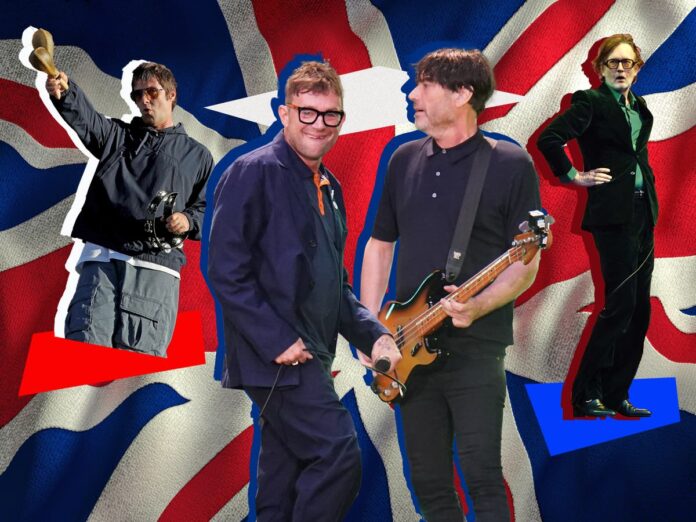A few years ago, you’d have struggled to find someone with a kind word to say about Britpop . ‘Patronising, jingoistic and crass,’ reckoned Suede ‘s Brett Anderson. ‘Grave-robbing necrophilia,’ lamented writer Simon Reynolds. ‘Just awful,’ said Blur ‘s own Graham Coxon . You wonder how Coxon feels today as Blur follow a nostalgia-soaked two-hander at Wembley in early July by claiming their seventh No 1 this week with new album The Ballad of Darren . That Wembley triumph – variously heralded as ‘glorious’ and ‘momentous’ – coincided with the acclaimed return of Pulp , led by Britpop’s resident eccentric professor Jarvis Cocker . Their comeback shows have been widely praised, too. The New Statesman credited Jarvis and company with ‘launching the second summer of Britpop’. The NME described Pulp’s first tour in a decade as ‘a reunion you never wanted to end’. Next month, meanwhile, Liam Gallagher releases a live LP culled from the two nights he played at Knebworth last year – an event that consciously referenced the peak Britpop moment of Oasis storming the same venue in 1996. For a chapter of British cultural history long shunned as naff and retrograde and blighted by a streak of ‘mockney’ class tourism, Britpop has recently been showing surprising signs of life. The ‘oi’s’ have it. Its resurgence is a feat of unprecedented musical rehabilitation. Until recently, Britpop was seen by many as having paved the way for Brexit in its celebration of British (ie English) exceptionalism and presentation of cultural frippery – fish’n’chips, a cuppa on a Formica table, pints at the dog track – as sacred expressions of a unique British (ie English) identity. Once you took back control of your pop music, how long before you tried to do likewise with your politics?
Can Blur really be cool again? Inside the strange rebirth of Britpop
Sourceindependent.co.uk
RELATED ARTICLES


